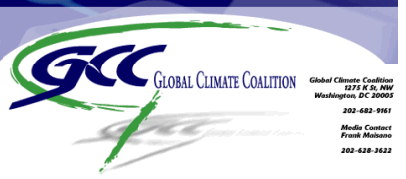
The GCC also influenced international negotiations through consistent engagement with the United States government dignitaries and officials directly involved in the UNFCCC and IPCC processes. In addition to the sixty-three million dollars contributed to U.S. Congresspeople on behalf of GCC members from 1989 to 1999, documents revealed during litigation and through public record requests demonstrate the GCC targeted all aspects of U.S. government, with a special attention to the State Department when mitigatory action at the UNFCCC seemed to grow more imminent (the State Department led the U.S. Delegation to UNFCCC meetings). The GCC leveraged their relationships, effectively communicating talking points, position statements, key policy wishes, and STAC-composed reports and essays throughout that period.
The GCC lobbied government officials to combat mandatory emissions reductions, carbon trading regimes, and the scientific consensus on anthropogenic climate change.
The GCC lobbied government officials to combat mandatory emissions reductions, carbon trading regimes, and the scientific consensus on anthropogenic climate change. They met with the Council on Environmental Quality, State Department, members of Congress, President Clinton and other Administration staff on at least ten occasions from 1996 to 1997. During that period, the State Department asked the GCC for input “on a number of issues … discussed at the next round of UN climate change meetings in July [1996].” The GCC STAC supplied a paper questioning the integrity of IPCC scientist Ben Santer, and the Second Assessment Report for not including enough discussion of “natural variability” or “natural forces.” The paper also criticized the use of the phrase, “discernible human influence” which was much stronger language than in the IPCC First Assessment Report. In at least two other meetings with the State Department, “[t]he GCC position was one of no need for rushing into any controls,” a message of delay that they aggressively repeated and defended in reports, monthly bulletins, and other materials aimed at influencing public opinion.
The GCC continued to voice its opinion to government officials until at least 2001, when a State Department briefing instructs Under Secretary Dobriansky to tell the GCC, that the “POTUS rejected Kyoto, in part, based on input from you.”
Return to Global Climate Coalition main page.
View and download the full report: Global Climate Coalition: Big Business Funds Climate Change Denial and Regulatory Delay.
